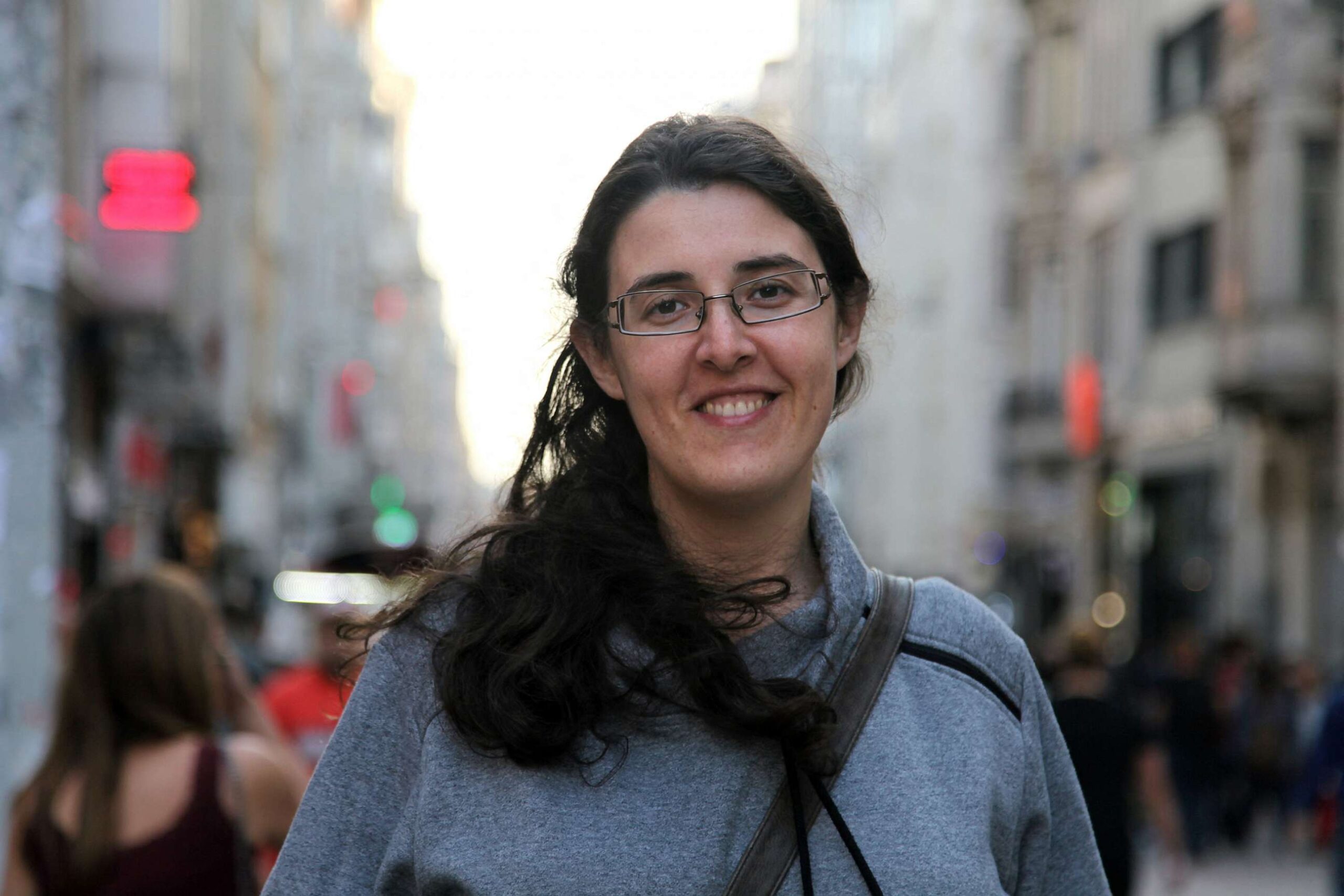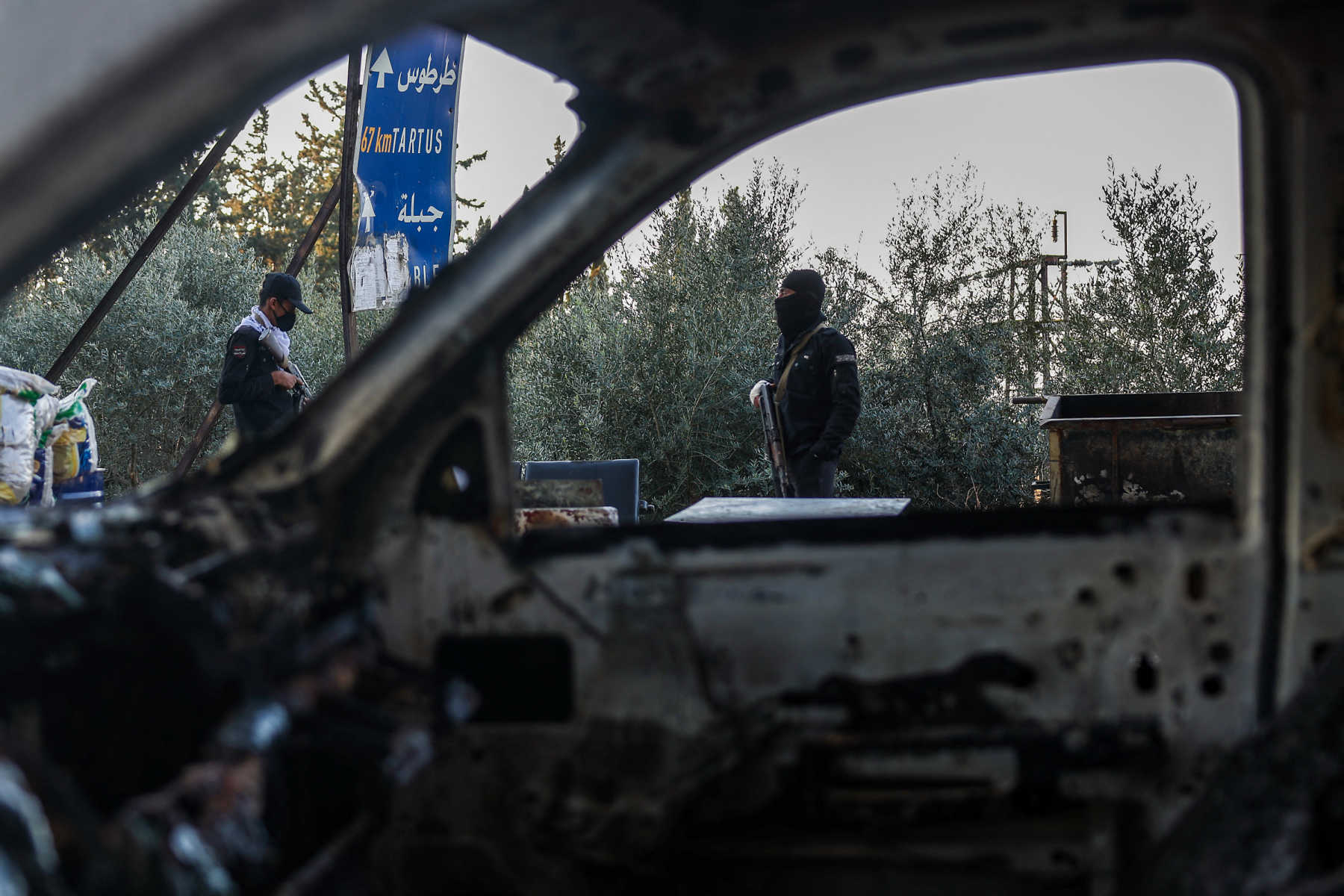Giorgio Cafiero is the CEO and founder of Gulf State Analytics, a Washington-based geopolitical risk consultancy.
The Swedish government is warning Swedes to "observe increased vigilance and caution" abroad because of "a heightened threat." The prime minister recently declared that the security situation in Sweden was at its highest level since World War II.
The actions of a small group of anti-Islam provocateurs in Sweden continue to reverberate. Public burnings of the Quran in Sweden earlier this summer, as well as in neighboring Denmark, sparked backlash and riots in several Middle Eastern countries, most violently in Baghdad where protesters stormed the Swedish embassy last month. Last week in Beirut, a Molotov cocktail was hurled at the Swedish embassy. In Stockholm this week, the two men who have been at the center of the episode once again burned a copy of the Quran.
Iraq has expelled the Swedish ambassador, while other countries in the region, including Iran and all six members of the Gulf Cooperation Council, have either summoned their Swedish ambassador or condemned the Swedish government for permitting Quran burnings under the banner of protecting freedom of expression. Sweden does not have a law specifically prohibiting the burning or desecration of the Quran or other religious texts, and it repealed its blasphemy laws in the 1970s. But hate speech against ethnic, national, religious and gender minorities is still a crime.
From Saudi Arabia and the United Arab Emirates to Iran, governments have responded to public sentiments that expect condemnation of the burning or desecrating of the Quran anywhere in the world, against the backdrop of previous episodes like the Charlie Hebdo affair in France. Iran, perhaps not surprisingly, took the harshest line against Sweden, with Supreme Leader Ayatollah Ali Khamenei demanding the "severest punishment" for the perpetrators and for the Swedish government to turn them over "to the judicial systems of Muslim countries."
But these government reactions are also politically calculated—to buttress themselves against any perceived lack of piety that could lead to domestic dissent, given genuine public anger over the burning of the Quran.
Government reactions are also politically calculated—to buttress themselves against any perceived lack of piety that could lead to domestic dissent.
- Giorgio Cafiero
"They have to be shown to be standing up to the West's different values when it comes to Islam or insulting Islam by members of the Western public," said Kenneth Katzman, a senior fellow at the Soufan Center.
"These governments are trying to prove that they're just as committed to defending Islam as their neighbors, and rulers want to protect themselves against opposition criticism," added Aron Lund, a Stockholm-based Middle East analyst who is a fellow at Century International.
And it wasn't only governments in the region. Souq al-Baladi, a prominent supermarket chain in Qatar, launched a boycott of all Swedish goods and removed them from its shelves "until further notice." In early June, the Grand Mufti of Oman called on Muslims worldwide to boycott all Swedish products.
The escalation with Sweden follows earlier burnings of the Quran in Denmark. "I think that most GCC countries were trying to hold back early in 2023 when the Danish wannabe-politician Rasmus Paludan burned Qurans," said Rouzbeh Parsi, the head of the Swedish Institute of International Affairs' Middle East and North Africa program, referring to the notorious far-right figure who burned a Quran in January in front of the Turkish embassy in Stockholm. "But for each incident, the pressure to react publicly has grown."
At the same time, given that Sweden is hardly a vital economic or security partner with Gulf states, the costs of lashing out at the Nordic country are low. "Burning a Quran is perfectly legal in the United States, for example, but you're not going to see Gulf Arab countries threaten boycotts against the U.S. economy," Lund said.
Governments in the Gulf are also trying to assert more international standing, promoting what they see as their soft power as self-declared defenders of Islam.
"It is an important stance that the Persian Gulf states are taking, together with the rest of the Islamic world," said Andreas Krieg, an associate professor at the Defence Studies Department of King's College London. "They are actors in their own right in international relations with their own leverage, and they'll use that leverage to advance their own interests and protect their own principles and values," including, he added, "in terms of narratives."
So far, this has all only amounted to mostly symbolic moves against Sweden and Denmark, like summoning or even expelling an ambassador. As with the Charlie Hebdo affair, the tensions could cool down relatively quickly.
"We've had episodes like this in the more distant past. They tend to blow over," said Katzman. "It's not gaining the GCC states, Iran or Iraq anything to break, interrupt or downgrade relations with Sweden. Particularly Iran, which is looking for sanctions relief from the United States and Europe—it doesn't help their case."
Parsi also doubts that it is in the interests of any of these countries "to see the situation escalate further." Instead, he said, "they will try and hold back on tangible actual steps and try to satisfy public opinion through symbolic acts and statements."
Yet Lund believes this current row has the potential to be more severe and damaging to relations between Sweden and countries in the region than previous episodes. "We've seen similar crises flare up and then peter out in the past," he said. "But reactions are quite harsh this time, and there's a cumulative element to it—it keeps happening."
"These governments are trying to prove that they're just as committed to defending Islam as their neighbors, and rulers want to protect themselves against opposition criticism."
- Aron Lund
Even barring further escalation, it is difficult to imagine tensions going away with far-right parties ascendant not only in Sweden but across Europe. These parties are mainstreaming Islamophobic narratives, often leading to more frequent public provocations like Quran burnings.
While Swedish officials condemn them, they also maintain that their hands are tied because of the country's laws on freedom of speech. "The crisis keeps being rekindled by new anti-Islam stunts," Lund said. "The government is very frustrated since it lacks the legal means to prevent these things from happening."
"When you see our embassy burning in Baghdad, you see the damage this causes to our country and reputation," Jan Eliasson, a former Swedish foreign minister and senior United Nations diplomat, told The New York Times. "On the other hand, the legislation is what it is—this is not illegal."
For that to change, Sweden's legal system itself would need to change in ways that expand the scope for defending hate speech laws to include desecration of religious items or introducing an exemption to the right to demonstrate under the guise of national security interests—which seems very unlikely and politically unpopular in Sweden.
"Swedish law includes very extensive protections for speech and the right to public assembly," Lund noted. "Although burning a Quran or a Torah or some other sacred item can get you convicted of a hate crime, it depends very much on the context. Some of these incidents may perhaps lead to convictions, but the legal system is still working that out. The police can't intervene to preemptively stop something that isn't clearly defined as a crime."
"That said, there's also considerable opposition to changing the law," Lund added. "Sweden's constitutional protections for free expression, including in vulgar and insulting ways, are very old"—dating back to 1766, when Sweden adopted the first freedom of the press law in the world. "They are an important element of our history and national identity. There's a sense of disbelief that the Swedish government should engage seriously with criticism from countries like Iran or Saudi Arabia, whose own commitment to religious freedom and tolerance is close to nil."
And just as governments in the region have to contend with their own domestic politics, so does the leadership in Stockholm. "Sweden is a highly secularized country where the idea of a kind of unbounded freedom of expression is quite strong," Parsi explained. "There are also political parties like the far-right Sweden Democrats who have encouraged the burning of the Quran as part of their anti-Muslim politics. Without their parliamentary support, the present ruling right-wing coalition would fall. So, I don't see any way a legal reform on this issue would be feasible."
















![Security forces loyal to the interim Syrian government stand guard at a checkpoint previously held by supporters of deposed president Bashar al-Assad, in the town of Hmeimim, in the coastal province of Latakia, on March 11, 2025. Syria's new authorities announced on March 10, the end of an operation against loyalists of deposed president Bashar al-Assad, after a war monitor reported more than 1,000 civilians killed in the worst violence since his overthrow. The Syrian Observatory for Human Rights said the overwhelming majority of the 1,068 civilians killed since March 6, were members of the Alawite minority who were executed by the security forces or allied groups. (Photo by OMAR HAJ KADOUR / AFP) / “The erroneous mention[s] appearing in the metadata of this photo by OMAR HAJ KADOUR has been modified in AFP systems in the following manner: [Hmeimim] instead of [Ayn Shiqaq]. Please immediately remove the erroneous mention[s] from all your online services and delete it (them) from your servers. If you have been authorized by AFP to distribute it (them) to third parties, please ensure that the same actions are carried out by them. Failure to promptly comply with these instructions will entail liability on your part for any continued or post notification usage. Therefore we thank you very much for all your attention and prompt action. We are sorry for the inconvenience this notification may cause and remain at your disposal for any further information you may require.”](https://dawnmena.org/wp-content/uploads/2025/04/syria-22039885951-350x250.jpg)










![Security forces loyal to the interim Syrian government stand guard at a checkpoint previously held by supporters of deposed president Bashar al-Assad, in the town of Hmeimim, in the coastal province of Latakia, on March 11, 2025. Syria's new authorities announced on March 10, the end of an operation against loyalists of deposed president Bashar al-Assad, after a war monitor reported more than 1,000 civilians killed in the worst violence since his overthrow. The Syrian Observatory for Human Rights said the overwhelming majority of the 1,068 civilians killed since March 6, were members of the Alawite minority who were executed by the security forces or allied groups. (Photo by OMAR HAJ KADOUR / AFP) / “The erroneous mention[s] appearing in the metadata of this photo by OMAR HAJ KADOUR has been modified in AFP systems in the following manner: [Hmeimim] instead of [Ayn Shiqaq]. Please immediately remove the erroneous mention[s] from all your online services and delete it (them) from your servers. If you have been authorized by AFP to distribute it (them) to third parties, please ensure that the same actions are carried out by them. Failure to promptly comply with these instructions will entail liability on your part for any continued or post notification usage. Therefore we thank you very much for all your attention and prompt action. We are sorry for the inconvenience this notification may cause and remain at your disposal for any further information you may require.”](https://dawnmena.org/wp-content/uploads/2025/04/syria-22039885951-360x180.jpg)









